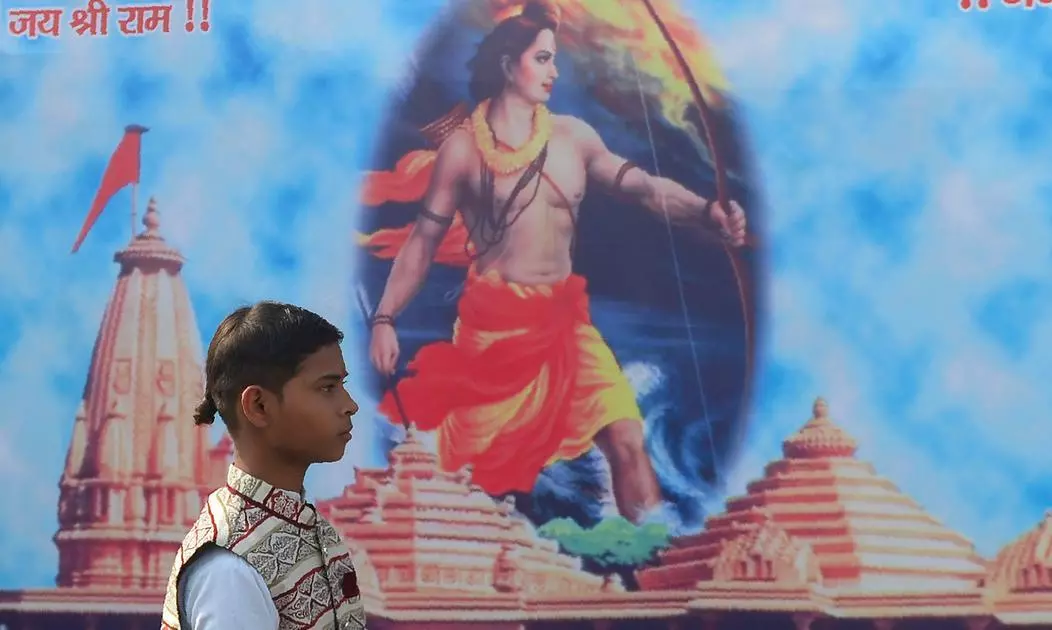
Babri Masjid demolition gone, enter Ram temple in NCERT textbook
text_fieldsThe National Council of Educational Research and Training (NCERT) has reportedly revised the Class XII political science textbook, which saw the removal of references to the Babri Masjid demolition, the Ayodhya movement, and its implications, in order to make room for the Ram Janmabhoomi movement and the construction of the Ram Temple as significant political events in recent times.
The revisions, slated to be implemented for the academic year 2024-25, have sparked debates over historical narrative and political ideology in educational materials.
The revised chapter, titled 'Politics in India since Independence,' has undergone substantial changes, particularly in its treatment of the Ayodhya dispute, where the Ayodhya movement, previously presented as one of the key recent developments in Indian politics, now sees a heightened emphasis, with the Ram Janmabhoomi movement taking centre stage, according to The Indian Express.
Gone are references to the Babri Masjid demolition of December 6, 1992, which was previously detailed in a four-page section, as the revised edition instead highlights the legal and political dispute surrounding the Ram Janmabhoomi Temple in Ayodhya, attributing significant political changes to this historical saga.
Notably, the revised text reflects the 2019 Supreme Court verdict allowing for the construction of the Ram Temple at the disputed site, signalling a shift in narrative focus.
The alterations extend beyond mere textual amendments. In the summary of the chapter, references to the Babri Masjid demolition have been entirely omitted, narrowing the scope of discussion to the legacy of the Ram Janmabhoomi movement.
Additionally, an exercise at the end of the chapter, which previously included the Babri Masjid demolition in a list of political events for chronological arrangement, now features the Supreme Court Judgment on the Ram Janmabhoomi instead.
Critics have raised concerns over these revisions, alleging a deliberate attempt to downplay or erase certain historical events for ideological reasons. The decision to remove references to the Babri Masjid demolition, a pivotal moment in Indian history with far-reaching consequences, has attracted particular scrutiny. Some argue that such revisions risk distorting students' understanding of historical events and their broader socio-political implications.
In response to queries regarding the revisions, the office of NCERT director Dinesh Saklani directed attention to the council's website, where explanations for the changes were provided. NCERT defended the revisions as updates reflecting the latest developments in Indian politics, particularly the Supreme Court's verdict on the Ayodhya dispute.
This marks the fourth round of revisions to NCERT textbooks since 2014, with previous rounds aimed at updating content to reflect recent events and reducing the curriculum load on students. However, the latest revisions have reignited debates over the balance between historical accuracy, ideological representation, and educational objectives.
While some view the revisions as a necessary step towards keeping educational materials up-to-date, others see them as part of a broader trend of historical revisionism and ideological shaping within educational frameworks. The controversy underscores the challenges inherent in crafting educational materials that are both informative and free from ideological bias.
As the revised textbooks are set to enter classrooms within a month, the debate surrounding their content is likely to intensify.






















